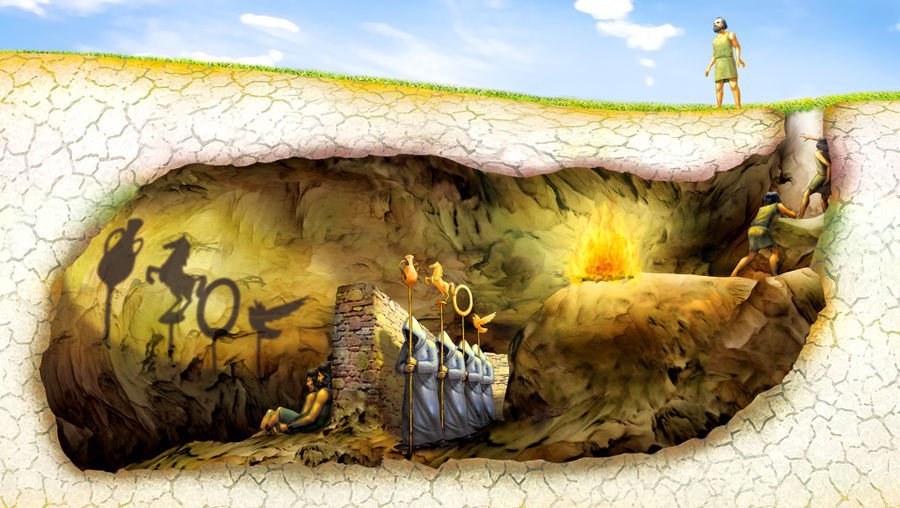- Thread starter
- #161
Nice illustration of Plato's cave. It really works it out. Very naughty with the religious slant to it!What constitutes the truth is not a relative thing. Neither does whether one believes that which is the truth have any bearing on whether it is indeed the truth. The truth may not always be knowable at every time at which one wants to know it; however, that too has nothing to do with what is the truth.
I think there is no truth.
Well, you and I clearly disagree in that regard.
You can have your own truth, I guess: that's what this alliance business in America today is all about. You just can't have MY truth, that is, inform me that X is true and that I have to believe it because it's, you know, true. I'll just say, no, it's Y all the way. And there is nothing you can really do about that.
There is no truth: there never was. It's all opinion, but that's my opinion. Your opinion is that there is truth, and if you are like the rest of us here, that YOU KNOW EXACTLY WHAT THAT TRUTH IS. OBJECTIVELY. VALID FOR EVERYONE. Whether they like it or not. No one will agree with that, however.
So-called "facts" are a subset of the problem and an interesting one. Where they are statistics -- tide tables and such -- we are tempted to make an exception for so-called facts as a sort of truth. However, that just leads to people saying atrocities such as that Trump is [obscenities, obscenities] dipped in Cheetoes and that's a fact! The word fact becomes an emphasizer for someone's opinion that they very, very much want to be recognized as "truth" by whomever they are talking with.
As if. My solution to the fact problem is the same as any other news: I believe the stats I like for whatever reason, and try to recall that they burned Copernicus at the stake, but nowadays we are not so......emphatic about insisting that the sun rises in the East. We still say it, but we think Copernicus may have had a point when he said the sun doesn't go around the Earth. There was a fact issue there, but facts are too often, often wrong.
Interesting take on it. But yes, there are 'truths' that are stated incorrectly or in a way that those who don't know the truth or who don't want to believe the truth can or will interpret in an incorrect way. Like 'the sun rises in the east.' The only problem comes in when those who interpret something in an incorrect way insist/demand that the incorrect way is the truth. They in fact will repeat it over and over and over again until it feels like the truth. And once it feels like the truth, it is extremely difficult to get a person to see it any other way.
Having had serious discussions with educated people who really do believe in a flat Earth, that is exactly how that wrong idea becomes so entrenched and permanent. They will defend their wrong impression passionately.
Which is generally what also happens when fake news goes viral.
